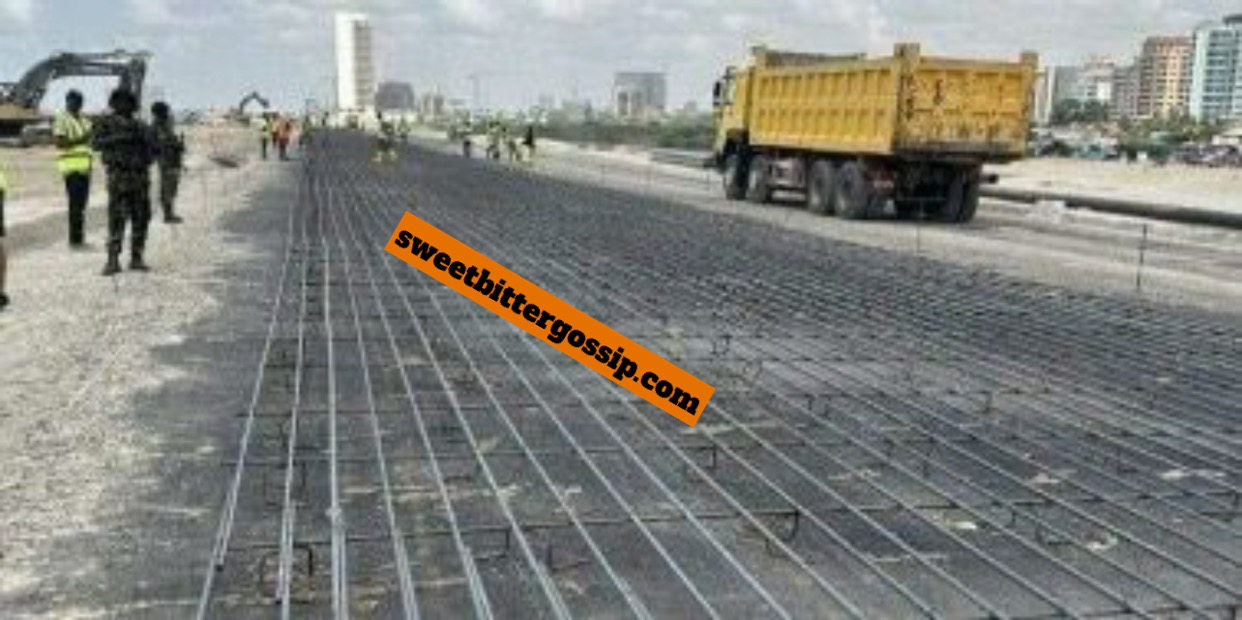The Federal Government plans to commence the construction of train tracks on Section I of the Lagos-Calabar Coastal Highway in 2025. The Minister of Works, David Umahi, made this announcement on Friday, December 20, 2024, during an inspection of Sections I and II of the project in Lagos. Hitech Construction Company Ltd is handling these sections. The Ministry of Works published the details in a statement on its official website on Saturday.
“The President has given very serious attention to road infrastructure. Don’t forget that this Coastal Highway and the four Legacy Projects all have train tracks incorporated. The construction of the train track for Section I is set to begin in 2025,” Umahi stated.
The Minister outlined additional plans to enhance the Lagos-Calabar Highway in Sections I and II of Phase 1. These include the installation of solar-powered CCTV cameras, lay-bys every 5-15 kilometers, and security posts to improve safety and monitoring along the route.
Umahi also announced that 20 kilometers of Section 1 are scheduled for commissioning by May 2025. According to the Federal Controller of Works, Engr. Olukorede Kashia, the project has faced challenges such as large refuse dumps and unsuitable soil conditions requiring extensive remediation.
Project Revision: Reducing Lanes for Cost Efficiency
The Ministry of Works did not directly address reports of a decision to reduce the Lagos-Calabar Coastal Highway from 10 lanes to six in its latest statement. However, during the inspection on Friday, Umahi confirmed the decision. This revision is part of efforts to revise the project’s scope, reduce costs, and ensure financial sustainability.
According to the News Agency of Nigeria (NAN), reducing the lanes aims to keep the project within budget while maintaining its long-term viability and impact.
Project Overview
The Lagos-Calabar Coastal Highway spans 700 kilometers, connecting nine states along Nigeria’s coastline. It is designed to enhance connectivity and boost economic growth, particularly in key trade corridors.
Key features of the highway include:
- Route: Starting at Victoria Island near Eko Atlantic City, the highway traverses the Lekki Coastal Road, Lekki Free Trade Zone, Dangote Refinery, and connects Ogun, Ondo, Delta, Edo, and Calabar in Cross River.
- Initial Design: Originally planned as a 10-lane highway with rail tracks incorporated into the main carriageways, the road features an innovative 11-inch-thick concrete structure reinforced with 20-millimeter steel.
- Contractor: Hitech Construction Company Ltd was selected under an Engineering, Procurement, Construction, and Financing (EPC+F) model. The company assumes the majority of financial responsibility, while the Federal Government provides counterpart funding.
Current Progress and Timeline
Construction of the first phase, covering 47.7 kilometers in Lagos, began in March 2024. This phase starts from Ahmadu Bello Way and is expected to be completed by May 2025.
The entire highway is projected to be completed within eight years, with various sections constructed simultaneously once procurement and approvals are finalized. Completed sections will be opened for use and toll collection in phases, contributing to regional development and infrastructure financing.
Challenges and Sustainability Goals
The Federal Controller of Works highlighted that constructing the Lagos-Calabar Coastal Highway has required addressing significant challenges. These include large refuse dumps along the route and unstable soil conditions that necessitate extensive remediation.
To ensure safety, security, and sustainability, the project incorporates modern technology and infrastructure. Solar-powered CCTV cameras and security posts will be installed along the highway, and lay-bys will provide resting points for travelers every 5-15 kilometers.
Economic and Regional Benefits
The Lagos-Calabar Coastal Highway is expected to transform connectivity in Nigeria’s coastal region. It will facilitate trade, attract investments, and drive economic growth, especially within the Lekki Free Trade Zone and other industrial hubs along the route. The integration of rail tracks will further enhance the corridor’s efficiency and impact, supporting multimodal transportation.
Once completed, the highway will significantly improve travel time and access to critical infrastructure, boosting regional development and positioning Nigeria as a trade and logistics hub in West Africa.
In the interim, the phased opening of completed sections will ensure the project begins delivering economic benefits even before its full completion. This approach also allows for early toll collection, contributing to the project’s financial sustainability.
By integrating rail lines, reducing the project’s lane count for cost efficiency, and leveraging advanced construction techniques, the Lagos-Calabar Coastal Highway represents a significant milestone in Nigeria’s infrastructure development agenda.

